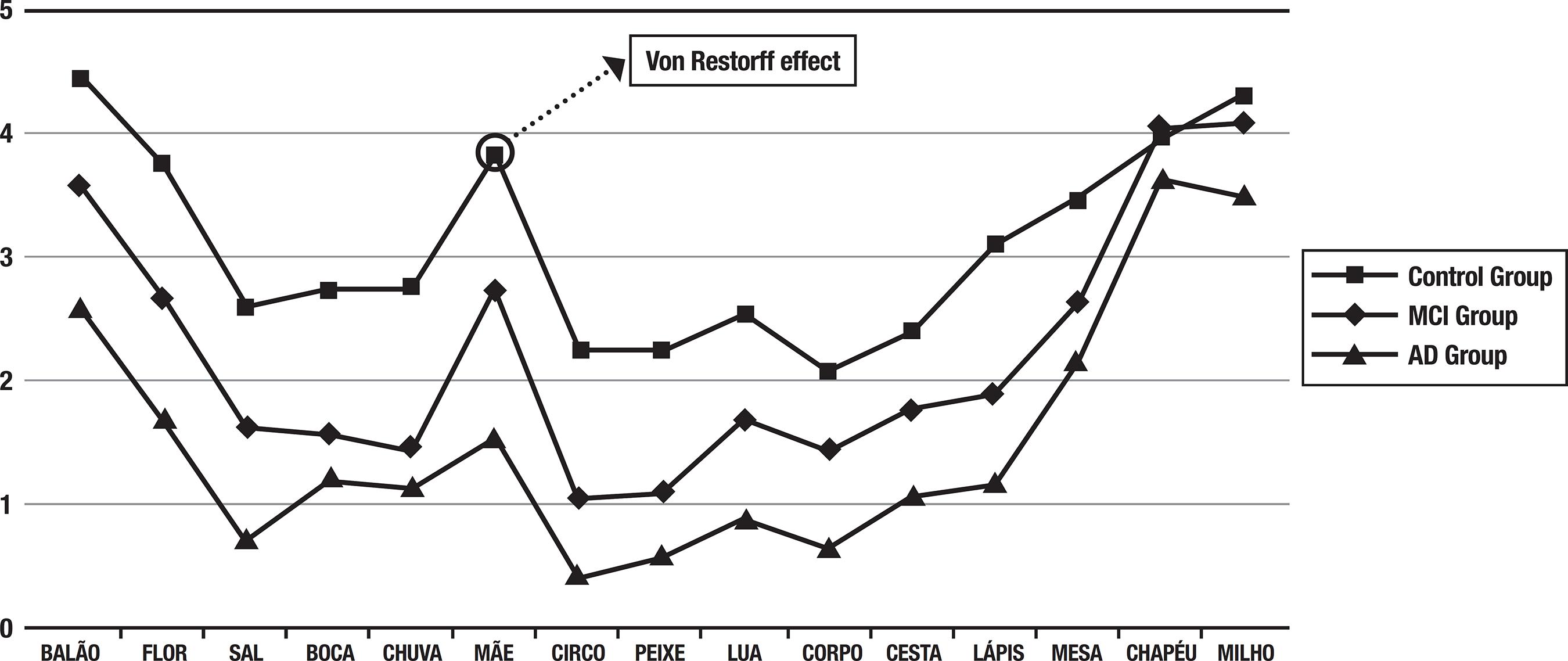ABSTRACT.
The Von Restorff (isolation) effect refers to a stimulus that is more likely to be remembered amongst other stimuli in memory tasks. It has been demonstrated with different age ranges and methodologies.
Objective:
To investigate: a) the presence of the isolation effect in elders tested with the new Brazilian Portuguese version of the Rey Auditory Verbal Learning Task (RAVLT) in which a word with potential emotional weight (mother) was introduced; b) whether isolation effects persist in memory disorders of different degrees of severity (Mild Cognitive Impairment [MCI]; Alzheimer’s Dementia [AD]).
Methods:
The RAVLT was administered to 287 consecutive volunteers. Individuals underwent medical and neuropsychological evaluation and were further sub-grouped into normal controls (n=114), MCI (n=87) and AD (n=86) patients. One-way analysis of variance (ANOVA) and Chi-squared tests were performed. Post-hoc Tukey analysis was conducted to assess significance of group differences.
Results:
There were significant group effects on the learning curve. A W-shape - instead of the classical U-shape - was found for the serial position curve in all groups.
Conclusion:
The new Brazilian version of the RAVLT exhibited the Von Restorff effect, where this phenomenon was evident not only in older adults but also patients with MCI and AD, providing further psychometric measures for inter-group analyses.
Key words:
memory; verbal learning; neuropsychological tests; memory disorders; dementia


